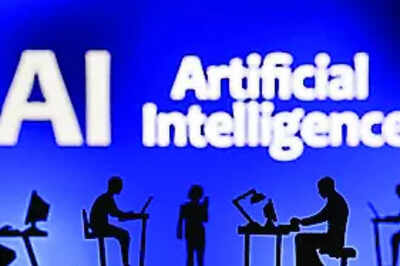AI anxiety in the workplace decoded: How innovation is making humans lose passion in the age of precision

Writers used to write. Data analysts used to process data. Designers used to design, teachers used to teach, and workers used to believe that skill was protection. But one day, a new force entered the room, silent, tireless, and unnervingly intelligent. It did not ask for a desk or a salary. It asked for relevance. Artificial intelligence had arrived, not as a tool, but as a quiet question: What happens to human purpose when the machine begins to think?Since then, workplaces have not merely evolved; they have trembled. The promise of AI-powered progress has been shadowed by an unspoken dread, AI anxiety, a distinctly modern form of fear that no algorithm can measure but nearly every worker can feel. It is not just the anxiety of job loss but the haunting suspicion that meaning itself may soon be outsourced.This truth finds its reflection in the 2025 Acta Psychologica study, “The Impact of AI Anxiety on Employees’ Work Passion.” The research is not merely a compilation of data points; it is a mirror held up to the soul of the modern worker. Surveying 430 manufacturing employees, it uncovered something unsettling: The more anxious humans become about machines, the less they care about their work.
The emotional price of progress
AI anxiety, as defined by the study, has two faces. One looks outward, fearing job replacement and sensing that one’s labour can be replicated by code. The other looks inward, the fear of inadequacy, of being forever behind the next algorithmic update.Both, the study reveals, crush work passion. But it is not fear alone that drains people; it is emotional exhaustion. Anxiety bleeds into fatigue, fatigue into disengagement, and disengagement into quiet despair.The research quantified this chain reaction. The correlations were sharp and statistically undeniable—AI anxiety and emotional exhaustion (β = 0.42), AI anxiety and loss of work passion (β = –0.48). Numbers rarely speak poetry, but here they almost do: fear consumes feeling.
The hollowing of the human spirit
When emotional exhaustion mediates the link between fear and passion, it doesn’t just affect productivity, it hollows the worker from within. A human being stripped of enthusiasm is not inefficient; they are disoriented. Their labour becomes mechanical before the machine even replaces them.This is the paradox of automation. We built AI to free ourselves from drudgery, but in the process, we’ve transferred the drudgery to our emotions. We now automate not only tasks but also the meaning that once made those tasks bearable.
The myth of seamless adaptation
Executives often answer AI anxiety with slogans, “adapt or perish,” “reskill to stay relevant.” But what they refuse to admit is that adaptation has a psychological cost. The constant demand to relearn, to retool, to “keep up” with intelligent systems has turned learning itself into a survival reflex, not a human pursuit.In the Acta Psychologica study, those with a strong learning goal orientation did manage to soften the blow, but even they were swimming upstream. The moderating effect was there, yes, but small. The deeper issue remains that humans are being asked to evolve at the speed of machines, not at the pace of cognition.And in this impossible race, exhaustion wins.
Leadership in the age of fear
The report’s most hopeful finding was the role of service-oriented leadership, bosses who listen, support, and share power.In their presence, AI anxiety lost its sting; passion flickered back to life. But this too exposes a moral truth: The antidote to technological anxiety is not more technology. It is humanity.Leaders who serve rather than command create psychological safety, the one thing automation cannot simulate. Their empathy becomes an act of rebellion in an economy obsessed with efficiency.
Beyond the factory walls
Though the study focused on manufacturing, the implications stretch across industries. In boardrooms and hospitals, classrooms and newsrooms, the same undercurrent flows, the quiet panic of redundancy. What the research captures is not a localized phenomenon but a civilizational shift. The worker of the 21st century is no longer fighting machines for wages but for dignity.
The future is not neutral
AI, for all its brilliance, carries no conscience. It has no concept of exhaustion, no pulse of anxiety, no ache of identity. Humans do. The Acta Psychologica study is a warning wrapped in data, a reminder that the human mind, not the machine, is the most fragile part of the automation equation.If we continue to treat fear as a training problem and not as a psychological emergency, we will breed a workforce that is efficient but emotionally extinct. Passion cannot be upskilled. It can only be protected.In the end, it is not the machine that will destroy meaning. It is our indifference to the emotional wreckage it leaves behind.






